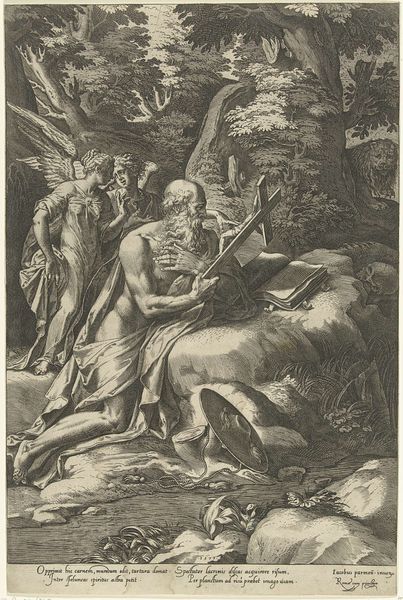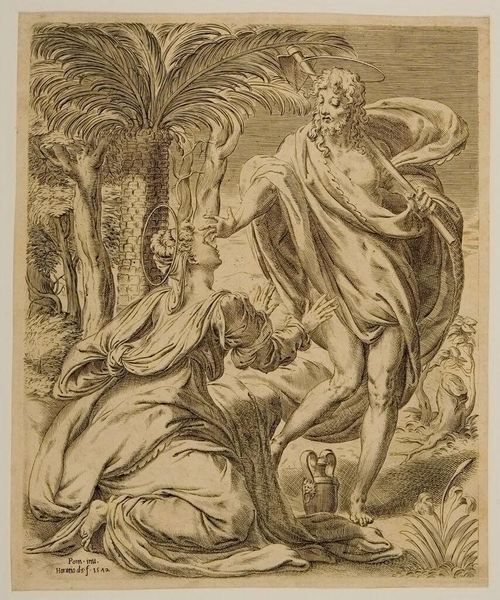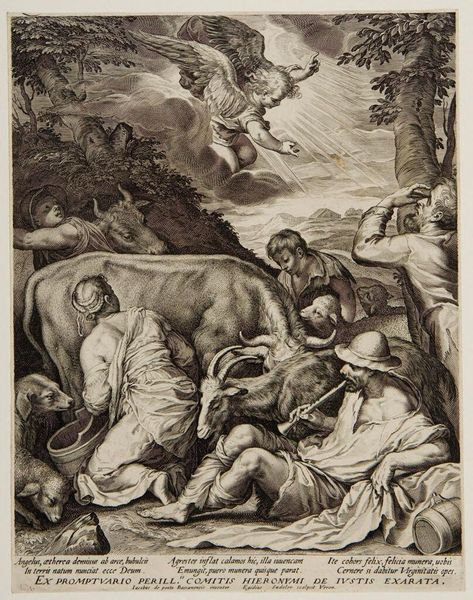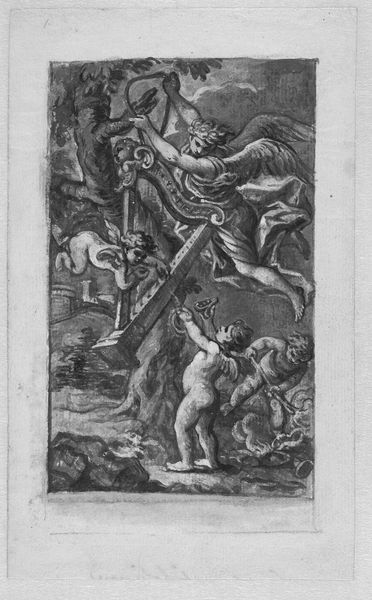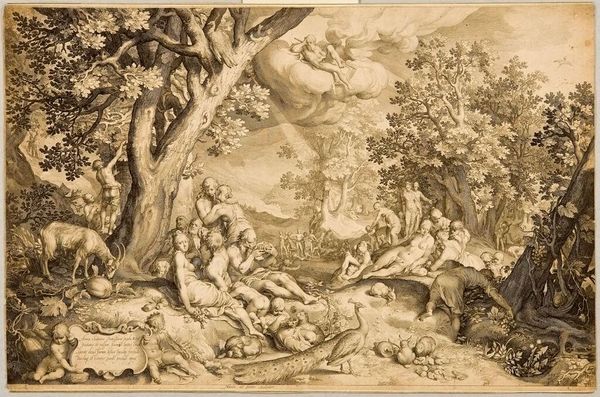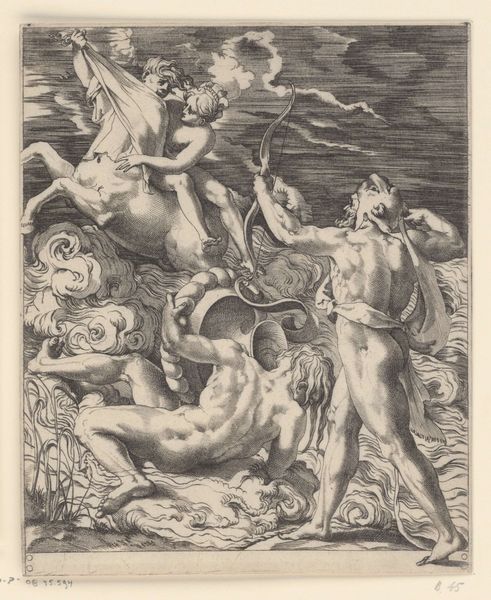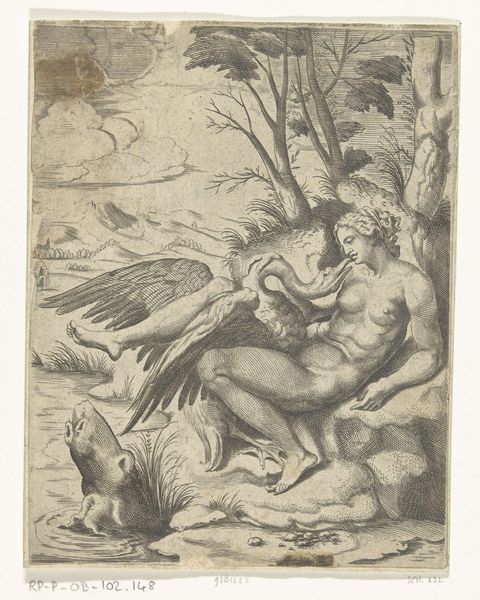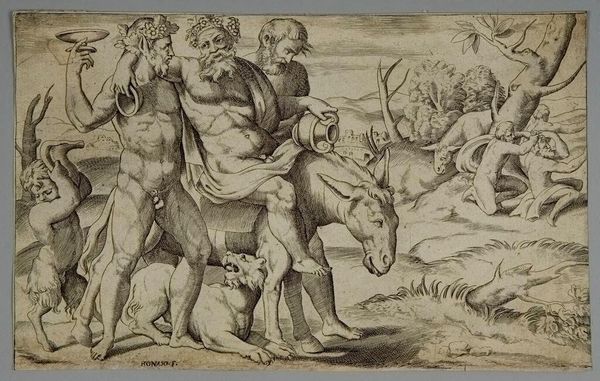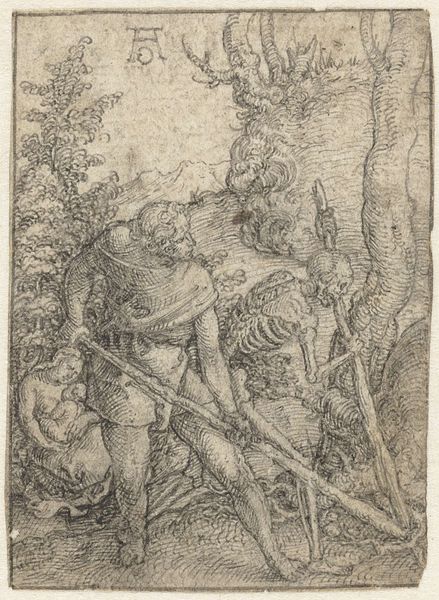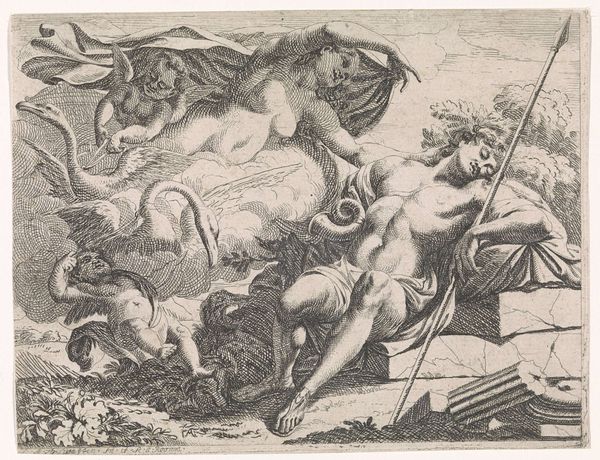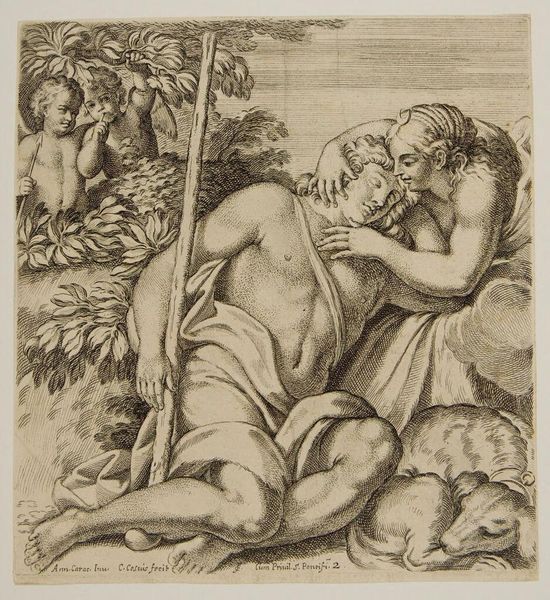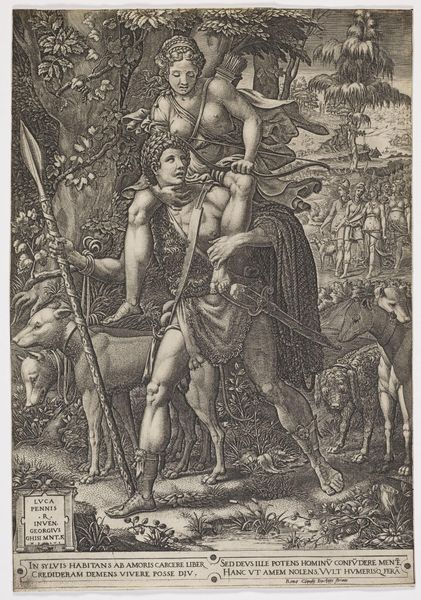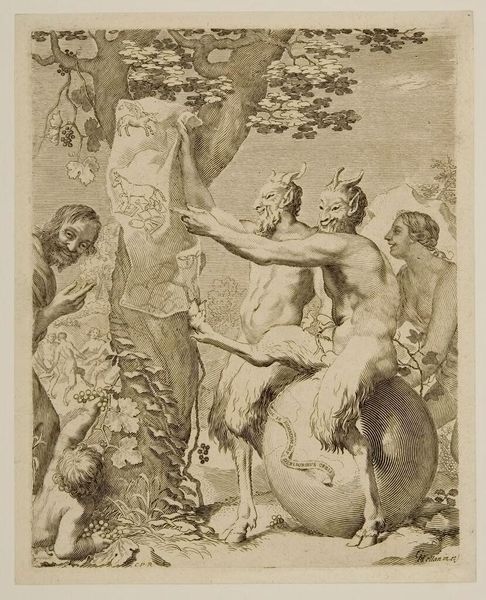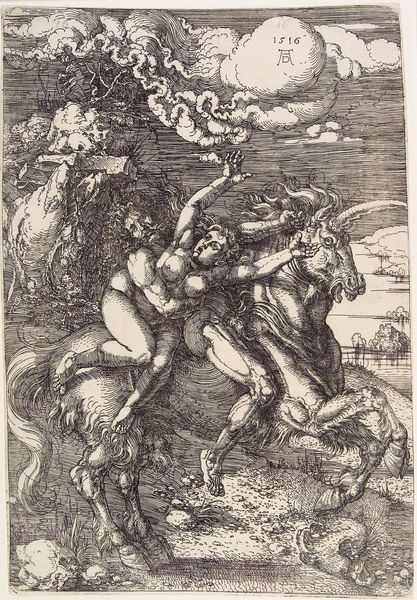
Copyright: CC0 1.0
Editor: This is Cornelis Cort's "Saint Jerome in the Desert." It's an engraving, so it has all this incredible detail. I'm struck by the almost theatrical drama of the scene. How do you read this image? Curator: Consider the historical context: the Counter-Reformation. The emphasis on penance, scripture, and the individual's relationship with God speaks volumes. How might this depiction of Jerome, a scholar in the wilderness, function as a response to the rise of Protestantism? Editor: So, it's not just a religious image, it's also a political statement? Curator: Exactly! The image participates in a broader discourse. The skull, the lion, the act of writing—these are symbols steeped in meaning, and Cort uses them to advocate for specific doctrines and power structures. Editor: Wow, I never thought of it that way. It gives the artwork a whole new layer of meaning. Curator: Indeed, it moves beyond mere representation.
Comments
No comments
Be the first to comment and join the conversation on the ultimate creative platform.
